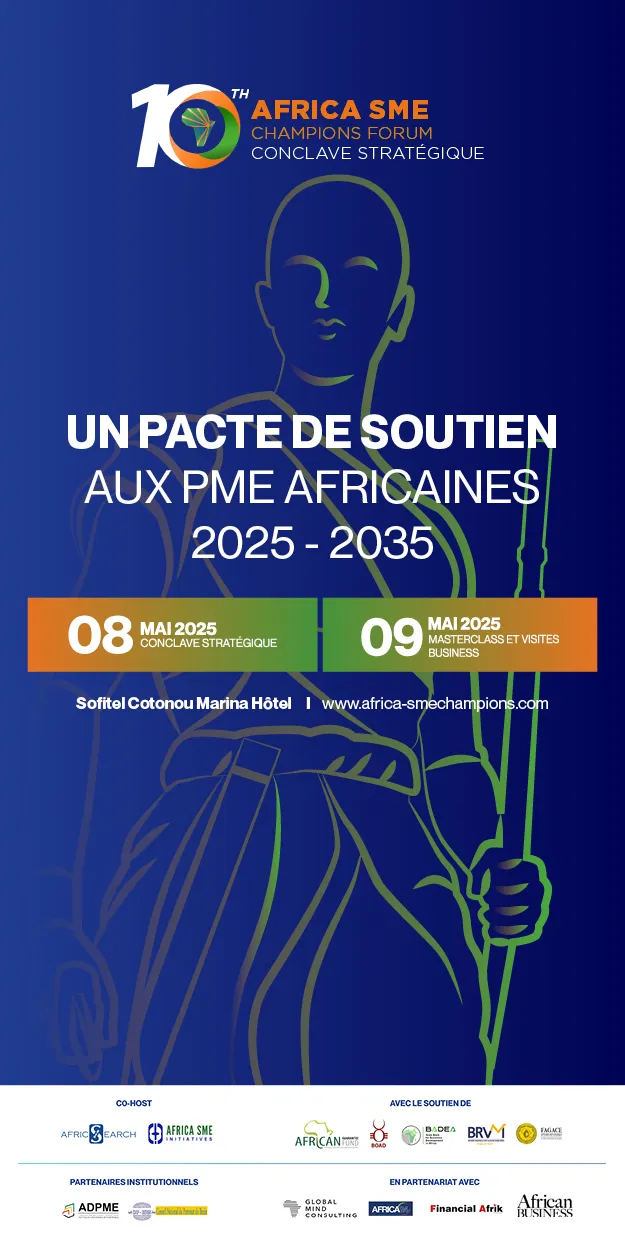As memories of Nelson Mandela’s presidency and apartheid’s demise faded by the early 2000s, the economic hopes of millions of poor South Africans hung by a thread.
With unemployment growing and household incomes stagnating, citizens found themselves trapped between a government struggling to deliver basic services and a risk-averse, white-dominated banking system reluctant to extend lines of credit.
Plans to educate children, improve township dwellings and start businesses were deferred as the flow of available credit slowed to a dribble. Sensing a historic opportunity, newly established unsecured lenders stepped into the breach, distributing capital to credit-starved neighbourhoods and playing a much-needed role in social regeneration.
Among the new operators, few commanded a higher profile – or were lavished with more praise – than African Bank, led by the charismatic Leon Kirkinis. Armed with a new business model and devoted staff, Kirkinis represented a new breed of South African banker – successful and socially conscious. Between 2008 and 2013, the market for unsecured lending doubled to R119bn ($329.1m). With control of some 25% of the market, African Bank ruled the roost.
But like the unmet promises of post-apartheid South Africa, African Bank’s success proved to be a mirage. In 2014, amid record losses prompted by reckless lending, the bank’s dramatic collapse began. As the South African Reserve Bank surveyed the wreckage, advocate JF Myburgh was despatched to probe the collapse. Among other criticism of the bank’s operations, his conclusions offered a damning portrait of leadership.
Far from the decisive helmsman of public imagination, Myburgh’s report revealed that although Kirkinis was viewed by colleagues as “very amicable” and “hands on” they found that he “struggled with delegation, he struggled with keeping people accountable; he struggled with managing such a large organisation… the thing became too big and too complex for him to handle effectively.”
Kirkinis had become, wrote Myburgh, an example of hubris – defined as “a loss of contact with reality and an overestimation of one’s own competence, accomplishments or capabilities, especially when the person exhibiting it is in a position of power.”
As businesses across the African continent strive to compete on the world stage, few factors are likely to prove as decisive as competent leadership. Yet unlike the continent’s frequently denigrated political leaders, the suited ranks of Africa Inc largely escape scrutiny until – as with African Bank – disaster sets in.
Many firms continue to depend on charismatic founders like Kirkinis, pliant boards derived from old boys’ networks, or expats flown in by multinational corporations with little experience of local conditions. Women and young Africans routinely find their paths to the top blocked by failed education systems, outright discrimination, or networks defined by self-interest.
In mitigation for this staid corporate culture, businesses complain that they struggle to unearth the executive talent that they desperately need. According to a survey of 230 African executives by recruiting firm Russell Reynolds Associates, 53% of Nigerian respondents highlighted the challenge of attracting leadership talent, with Kenyan (43%) and South African (46%) respondents similarly pessimistic about their ability to lure gifted executives. Traditional management skills, including team building and an ability to drive change, were scarce in all three countries.
If the businesses of the future are to avoid the ignominious fate of African Bank, experts say that companies, politicians and educators must work together on new strategies to bridge the widening talent gap.
“My view is that the talent is there but that’s it’s not being given a space at the table,” says the chief executive of the African Leadership Institute, Jackie Chimhanzi. “There’s plenty of talent but we still have the same generation hogging the space. We’re not seeing enough young people getting through the leadership ranks. There needs to be an opening up.”
Unblocking the talent pipeline
Based in the wealthy environs of the V&A Waterfront, the well-to-do students at the University of Cape Town Graduate School of Business may appear to have little in common with the revolutionary activists who ignited the Rhodes Must Fall protests on the institution’s main campus. But in the long term, the business students’ eagerness to transform African capitalism and grab a seat at the table may prove just as radical.
Once known as a finishing school for students targeting a place in the white boardrooms of corporate South Africa, the school is responding to demands by its multinational faculty to offer modern insights into the realities of Africa’s diverse business environment. For lessons in leadership, the students now turn to an award-winning case study based on the collapse of African Bank.
“I think we’re just starting to engage, mainly because some of our recent alumni have moved into those spaces and have told us what’s working and what’s not,” says Kurt April, a professor at the business school. “There’s still a divide between the old-style faculty that wants to do things the old way and sees corporate South Africa as their main outlet for students. And there’s a new wave of academics from around the world going into the townships and lower socio-economic areas. There’s a shift.”
For decades, business education in Africa struggled to equip the tiny number of fortunate graduates with the skills needed to grapple with a continent in constant upheaval. For talented graduates, the most to be hoped for was a comfortable management position in the ranks of the multinationals – perhaps a mid-level role with Coca-Cola, Anglo-American or Barclays. Others simply left the continent for better opportunities elsewhere.
Creative entrepreneurialism largely fell by the wayside in a continent defined by government interference, economic stagnation and the extraction of raw materials. With most Africans lacking even a rudimentary primary education – let alone university experience – boardrooms became stuffed with veteran placemen and well-connected political appointees. The era of the ossified boardroom had begun, and those in charge had little incentive to derail the gravy train.
The radical transformation of Africa’s economy over the last decade is slowly bringing those days to an end. Economic growth – albeit muted in the last few years – is gradually unlocking the potential of Africa as a consumer economy. While the rise of the middle class remains as much a slogan as a reality in large parts of the continent, the potential of the market has inspired young Africans to pursue entrepreneurial ambitions.
Wildly influential disruptors – from cement tycoon Aliko Dangote to telecoms innovator Strive Masiyiwa – offer a template for self-made success. Increasing education means more Africans are expected to be in a position to follow them into business – while only 7% of young Africans are currently enrolled in tertiary education and 50% in secondary education, according to the World Economic Forum, enrolment in primary education is up 20% in a decade to 79%.
“There’s a lot of talk of staying at home and making a difference,” says Kurt April. “We developed a course called Doing Business in Africa – that course is now oversubscribed. South Africans have always looked to Europe… people today see the rest of Africa as viable options. They are starting to get more savvy about where you can get businesses off the ground.”
In response, the number of business schools catering for would-be entrepreneurs has mushroomed. International players are piling into the market – in 2016, Harvard Business School launched a senior executive programme for Africa, partly based in Cape Town.
No country for young men (or women)
Although the pool of future executive talent is growing, there is little evidence that Africa’s corporate elites are preparing to surrender their perch to the new generation. In particular, women and young people continue to find themselves shut out of leadership roles.
According to an African Development Bank study, women hold just 12.7% of board directorships – 364 out of 2,865 – in 307 listed companies based in 12 African countries. That compares to 17.3% on the boards of 200 of the largest companies globally. Around a third of African companies have no female presence on the board, although representation at large-cap companies compares favourably to Asia-Pacific, the Middle East and Latin America.
“The majority of board appointments continue to be made in a largely informal process, based in the proverbial ‘old-boy’ networks, fed by family, clan, school and business relations,” suggests the report, which concludes that boards often lack an understanding of the benefits of diversity. Despite a booming youth population with increasing purchasing power – Africa is the world’s youngest region with over 60% of the population below the age of 25 – young Africans remain similarly marginalised in businesses across the continent.
“I don’t think it’s a conspiracy theory. When old guys play golf together and there’s a board position, they will recommend each other and the old boys’ network gets reinforced at the expense of women and young people. Given what’s happening with the pace of change and technology, it calls for younger leadership. You want people who understand current trends and where things are going,” says Chimhanzi.
One solution may be the imposition of quotas. Kenya and South Africa have introduced targets for female board members at state-owned enterprises, but investor fears of government intervention make private sector action a more challenging proposition.
Ultimately, investors need to be convinced of the overwhelming business case for greater boardroom diversity – a debate that should be ever easier to win as Africa’s women and young wield increasing consumer power and knowledge of their market demographic. Progressive firms with an eye to the future are already launching internships, mentoring schemes and fast-track management programmes.
“Private business needs to take a bigger role in education and skills development. There’s been some good inroads made by corporates that are taking roles in universities, providing bursaries, getting employees to act as mentors and running skills workshops. We should start in schools and try to identify talent and provide the right funding,” says April.
The future belongs to the youth
By such activities, corporate Africa may attempt to slow change to a pace acceptable to its interests. Yet in startup hubs from Nairobi to Lagos, thousands of impatient young Africans frustrated by the sloth-like pace of corporate change and thwarted in their political ambitions by octogenarian presidents are ill-prepared to accept further delay.
Armed with laptops, a can-do attitude and the support of like-minded peers, young Africans are bypassing traditional companies, anointing themselves chief executives and selecting industries to disrupt. The new model is not without its risks.
With its disruptive business model, meteoric growth, and charismatic founder, African Bank offers a cautionary tale of startup failure. And even youthful startups require the basic accounting skills, balance sheet know-how and access to finance of the established corporations.
“I’ve talked to a lot of people who say, why do you want to sit at the table, why don’t you set up parallel systems and employ more women and young people?” says Chimhanzi. “Ultimately we do coexist, so I would argue we still need more women and young people at the table of traditional institutions. We need both.”
Indeed, Africa’s startup boom may offer established corporations one last chance to co-opt the young leaders of the future before they turn their back on the larger players for good.
“That’s where good corporates can gain from this – take long-in-the-tooth employees, mentor these groups and gain from this,” says April. “Maybe buy in small startups to give energy and impetus to their own business. It’s a wonderful community one didn’t see 10 years ago and a push back to corporate life and the slowness of change.”
David Thomas
Want to continue reading? Subscribe today.
You've read all your free articles for this month! Subscribe now to enjoy full access to our content.
Digital Monthly
£8.00 / month
Receive full unlimited access to our articles, opinions, podcasts and more.
Digital Yearly
£70.00 / year
Our best value offer - save £26 and gain access to all of our digital content for an entire year!

 Sign in with Google
Sign in with Google 





